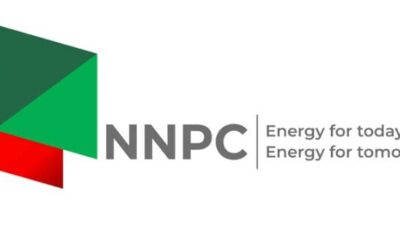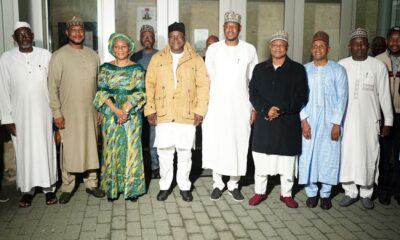News
NASENI aims for a 25% reduction in import bill by 2030

The National Agency for Science and Engineering Infrastructure has set a target to decrease the import bill by 25% to $34.7 billion by 2030 by fostering partnerships for local production of the top 10 items in the country.
By focusing on technology knowledge transfer to over 300,000 small and medium enterprises, NASENI also foresees creating over three million jobs by the same year and lifting 2.5 million people out of poverty within five years.
These plans were outlined in a document revealed to the media by Khalil Halilu, the Executive Vice Chairman of NASENI, on Wednesday.
The envisioned outcomes of technology transfer to the country’s economy include the aforementioned projections.
Halilu highlighted that Nigeria’s imports had surged by 66% over the past four years to $60.5 billion, with 10 import item categories contributing 77% of the total bill while SMEs accounted for only 6.21% of exports.
Pointing out the limited economic growth due to low industrial and technological productivity in Nigeria, Halilu stressed the need for rapid technology transfer as a solution, emphasizing its role in boosting economic growth through technological transfer and adaptation in crucial sectors.
He also mentioned that technology transfer could trim go-to-market time by 75%, reducing total production time from three years to a range of six months to one year.
In addition, Halilu disclosed that NASENI and the Rural Electrification Agency had inked an agreement to deploy renewable energy technologies, particularly NASENI’s solar resources, to provide illumination in rural areas of Nigeria. The agency had secured a $150 million investment for a battery factory from the UAE.
Halilu further revealed that NASENI had engaged with the police and state governments to offer their inoperative trucks and tractors for refurbishment, an initiative that could save billions of naira annually on vehicle acquisitions.
He stated, “The police have shown interest in the program. The concept involves fixing the malfunctioning vehicles, with NASENI claiming 20% of the repaired vehicles.”
“We are also eyeing 55,000 faulty tractors owned by state governments. 80% of the revitalized tractors will be utilized by the governments, while NASENI will take the remaining 20%, which will be sold to farmers,” Halilu added.


 Business8 months ago
Business8 months agoFinance minister: Tinubu’s government met a bad economy, can’t borrow to fix it

 News5 months ago
News5 months agoWorld Bank disburses $300m palliative loans

 Business8 months ago
Business8 months agoWorld Leaders, Including Obasanjo, Call for End to Dollar Dominance

 News6 months ago
News6 months agoBlogger Wins N1m Prize at WIMBIZ Conference

 Business9 months ago
Business9 months agoNigeria’s Crude Oil Production Falls to 3-Month Low Amid Persistent Oil Theft

 Business1 month ago
Business1 month agoFinance Analyst, Aja: Naira Strengthens as Forex Subsidy Boost BDC Operators

 News5 months ago
News5 months agoNigeria Achieves 78% Vaccination Coverage in 12 States, Reveals Official

 Business7 months ago
Business7 months agoIt’s false, NNPCL not involved in secret recruitment











